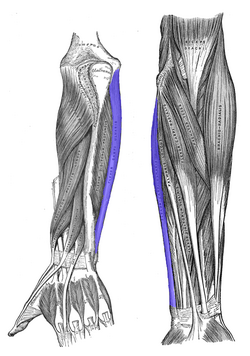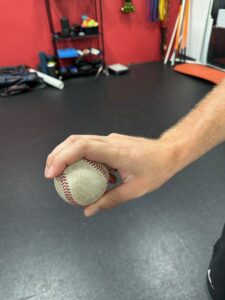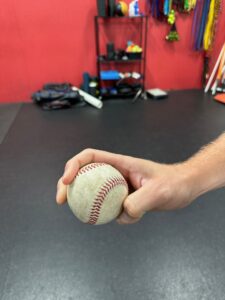
Hand Size, Anatomy, and Tissue Extensibility
Here is my hand (at 5-8) compared to the hand of a pitcher who is 6-8. Meanwhile, the baseball is the same size for both of us.
To manipulate the baseball, he has to close his hands more.
Meanwhile, me holding a baseball keeps me a bit closer to the anatomical position.
Now, consider that many of the muscles that work to close the hands (flexors) actually attach on the medial epicondyle via the common flexor tendon.
Therefore, a lot of extra tone further up the chain can come from longer term density changes at the hand. We usually talk about working proximal to distal, but in this case, the distal (hand) can impact the proximal (elbow) heavily.
Doing more targeted manual therapy, range of motion, and strength work at the wrist/hand has been a big difference maker for us. And, in many cases, it helps to make more of your proximal changes “stick” a bit better. You’re most likely going to find the biggest areas of “density” along the thumb, and then along the pinky side of the hand.
Try digging in on the soft tissue structures of the hand in throwers; you might be surprised at what you find.







